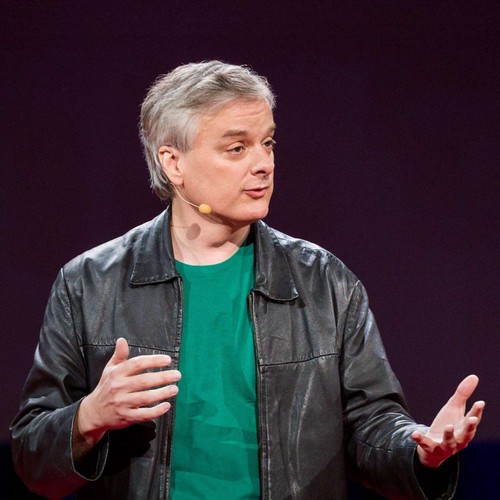
 80,000 Hours Podcast
80,000 Hours Podcast #67 Classic episode – David Chalmers on the nature and ethics of consciousness
Philosophy's Role
- Philosophy excels as an incubator for other disciplines because it tackles hard problems.
- Once solutions or methods emerge, these areas often spin off into separate fields.
Value of Philosophical Progress
- Philosophy progresses through clarifying questions, creating frameworks, and refining arguments, even without definitive answers.
- This 'smaller' progress enhances understanding, which holds intellectual value.
Embrace Novel Ideas
- Explore unconventional philosophical views, even if they seem wacky, to potentially uncover deeper understanding.
- Avoid excessive focus on novelty for its own sake, as it can hinder genuine progress.





























































Rebroadcast: this episode was originally released in December 2019.
What is it like to be you right now? You're seeing this text on the screen, smelling the coffee next to you, and feeling the warmth of the cup. There’s a lot going on in your head — your conscious experience.
Now imagine beings that are identical to humans, but for one thing: they lack this conscious experience. If you spill your coffee on them, they’ll jump like anyone else, but inside they'll feel no pain and have no thoughts: the lights are off.
The concept of these so-called 'philosophical zombies' was popularised by today’s guest — celebrated philosophy professor David Chalmers — in order to explore the nature of consciousness. In a forthcoming book he poses a classic 'trolley problem':
"Suppose you have a conscious human on one train track, and five non-conscious humanoid zombies on another. If you do nothing, a trolley will hit and kill the conscious human. If you flip a switch to redirect the trolley, you can save the conscious human, but in so doing kill the five non-conscious humanoid zombies. What should you do?"
Many people think you should divert the trolley, precisely because the lack of conscious experience means the moral status of the zombies is much reduced or absent entirely.
So, which features of consciousness qualify someone for moral consideration? One view is that the only conscious states that matter are those that have a positive or negative quality, like pleasure and suffering. But Dave’s intuitions are quite different.
Links to learn more, summary and full transcript.
Instead of zombies he asks us to consider 'Vulcans', who can see and hear and reflect on the world around them, but are incapable of experiencing pleasure or pain.
Now imagine a further trolley problem: suppose you have a normal human on one track, and five Vulcans on the other. Should you divert the trolley to kill the five Vulcans in order to save the human?
Dave firmly believes the answer is no, and if he's right, pleasure and suffering can’t be the only things required for moral status. The fact that Vulcans are conscious in other ways must matter in itself.
Dave is one of the world's top experts on the philosophy of consciousness. He helped return the question 'what is consciousness?' to the centre stage of philosophy with his 1996 book 'The Conscious Mind', which argued against then-dominant materialist theories of consciousness.
This comprehensive interview, at over four hours long, outlines each contemporary theory of consciousness, what they have going for them, and their likely ethical implications. Those theories span the full range from illusionism, the idea that consciousness is in some sense an 'illusion', to panpsychism, according to which it's a fundamental physical property present in all matter.
These questions are absolutely central for anyone who wants to build a positive future. If insects were conscious our treatment of them could already be an atrocity. If computer simulations of people will one day be conscious, how will we know, and how should we treat them? And what is it about consciousness that matters, if anything?
Dave Chalmers is probably the best person on the planet to ask these questions, and Rob & Arden cover this and much more over the course of what is both our longest ever episode, and our personal favourite so far.
Get this episode by subscribing to our show on the world’s most pressing problems and how to solve them: search for 80,000 Hours in your podcasting app.
The 80,000 Hours Podcast is produced by Keiran Harris.

